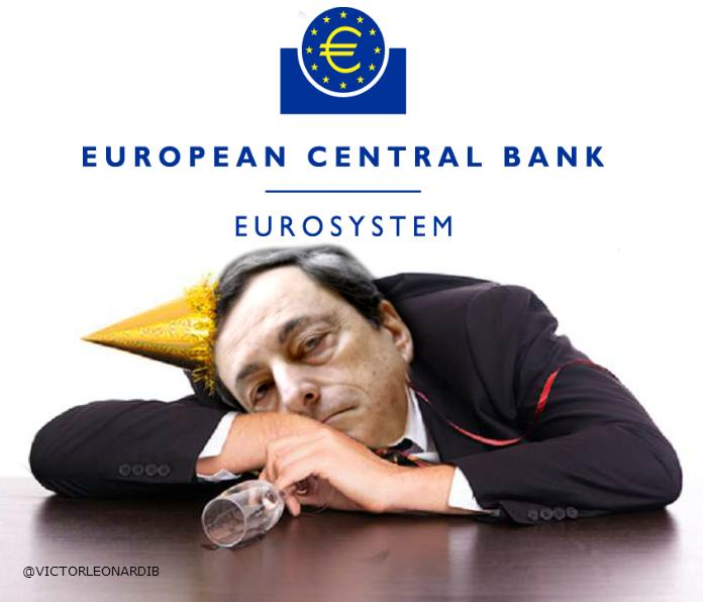With 8 days to go, everything is on the table
Reuters spoke to anonymous ECB officials and gained some insight into next week's pivotal ECB decision.

We know the ECB will offer something to ease European disinflation despite objections from Lautenschlager and the German hawks.
Here are the key takeaways:
1) The ECB doesn't have a coherent plan yet
The have thrown a lot of things out there just 8 days ahead of the ECB decision. This should be the time when they're sorting out details not trying to figure out what rates they'll lower and what assets they'll buy.
"We have deflation, so you have to do something," said a source. "How this all looks in a few years, nobody knows."
That's a scary statement.
The clock might simply run out. These are untested methods and the euro at 1.06 might be the excuse for officials to offer a token move and hint at what's coming in January. The euro squeeze higher would probably take it to 1.10 but with the Fed next and a promise of action in January, it wouldn't go higher.
2) The ECB wants to surprise markets
More than the technical aspects, this is probably the most important factor.
"There are some who say you should surprise markets. But you cannot surprise indefinitely. Sooner or later, you are bound to disappoint," the anonymous ECB source said.
The ECB is congnizant of expectations and wants to exceed them, at least this time. Or maybe the nearly 10 cent fall in the euro since the previous ECB meeting will make them feel they don't need to deliver.
The good news is that the decision probably won't spill out of the leak-ridden ECB ahead of time.
3) Municipal bond buying is still on the table
Munis were floated earlier and are still out there. The ECB definitely has bond liquidity constraints if it's considering buying the bonds of regions and towns. But if it's okay with politicians, it's plain QE and it's hard to see any specific downsides.
It's pure FX manipulation though; it's not like with US QE where in theory the lower yields would encourage corporations to invest more and people to invest in riskier assets. This just makes it cheaper for towns to borrow and reverses the discipline the ECB was driving during the debt crisis.
4) "Officials are discussing a split-level rate, a contested step that would impose a higher charge on banks depending on the amount of cash they deposit with the ECB."
So the first billion is at -0.25% and the rest at -0.50% or more??? This stole the headline and sparked some euro selling but if you were expecting an across-the-board deposit rate cut it's not necessarily euro negative.
It's also needlessly complicated. The deposit rate cut has worked in Switzerland and it's probably a bigger deal that QE, yet it doesn't get the attention it deserves.
This is a tough one to react to without details. How much of the 170B euros parked at the ECB is subject to a lower deposit rate? That's how I'd evaluate it.
5) Buying bank loans
This is a pretty big one too but the courts and Germans wouldn't like. You assume the risk of non-payment and it becomes a financial crisis waiting to happen. "If we get to that, then things are very bad," the source said.
So that's a longshot for now. I does tell us that the ECB is building an arsenal for a long war, not a one-day battle on Dec 3. That's euro-negative.
Overall
The market largely got it right because some of the measures are serious stuff but it also needlessly stokes speculation and makes it tougher for the ECB to surprise.
I continually get the sense that there are QE supply constraints despite Draghi saying otherwise. The market wants at least another 300 billion in bond buys and that will drive the initial euro reaction next Thursday.
As a trader, this level of complexity in a crowded market is the kind of thing to push me to the sidelines.




